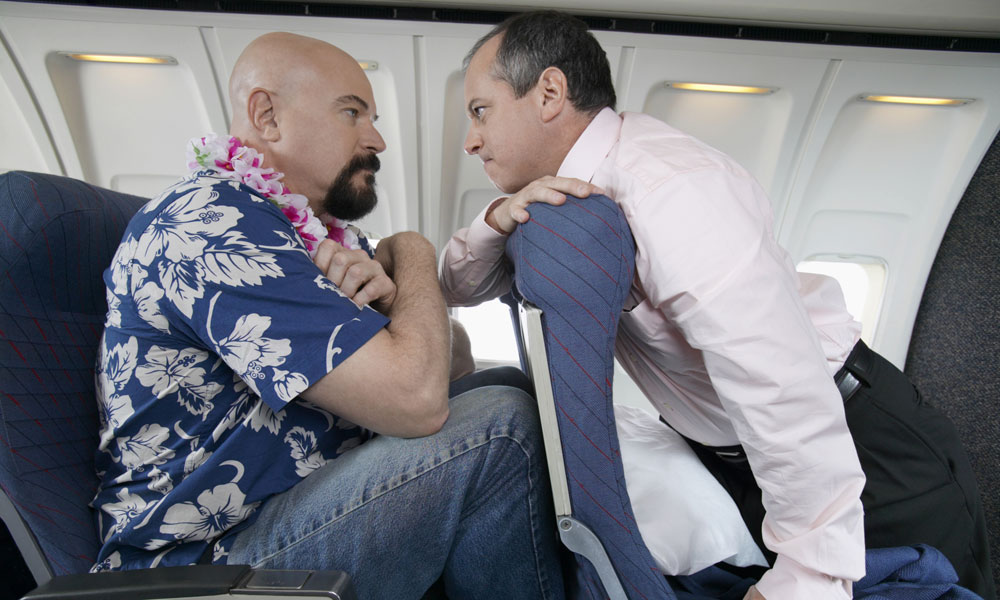
Airline Group Wants Industry, Government Help With Unruly Passengers
With thousands of cases of passenger conflict reported on airlines each year, the International Air Transport Association is seeking to boost cooperation among governments, airports, and airlines.
When an airline passenger gets out of control, it means trouble for everyone else on the plane, too.
Stories about travelers who don’t follow instructions or who verbally and physically assault their fellow passengers (or even flight attendants) are relatively common.
That’s why a leading airline association is taking a stand on the issue. At its annual meeting this week, the International Air Transport Association adopted a resolution encouraging governments and industry groups to coordinate on controlling unruly passengers. It’s a problem that many airlines address in their own policies, but the association says more needs to be done.
“Many airlines have trained both ground staff and cabin crew in procedures not only to manage incidents of unruly behavior but also in measures to prevent them,” IATA CEO and Director General Tony Tyler said in a statement. “But a robust solution needs alignment among airlines, airports, and governments.”
The IATA resolution would give airlines and governments additional avenues to deter bad behavior, including increasing their legal jurisdiction and heightening the public’s awareness of repercussions of disrupting a flight. It calls for airlines to strengthen their policies and employee training programs, and asks airports and airport bars and concession stands to establish policies to prevent travelers from getting out of hand.
The association also wants governments to ratify a policy approved at the International Civil Aviation Organization diplomatic conference earlier this year, the Montreal Protocol 2014.
“Governments should adopt all the legal powers at their disposal to ensure unruly passengers face the appropriate consequences for their actions,” Tyler said. “Airlines, airports, and others must work together to implement the right procedures and train staff to respond effectively to such instances.”
(Digital Vision/Thinkstock)






Comments